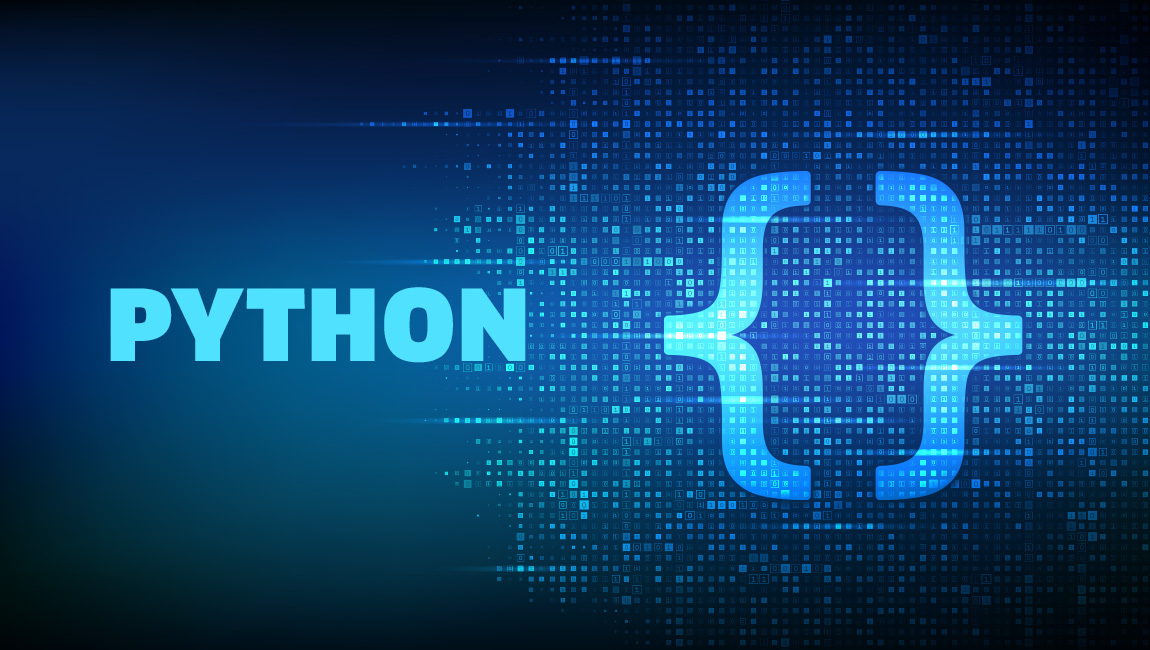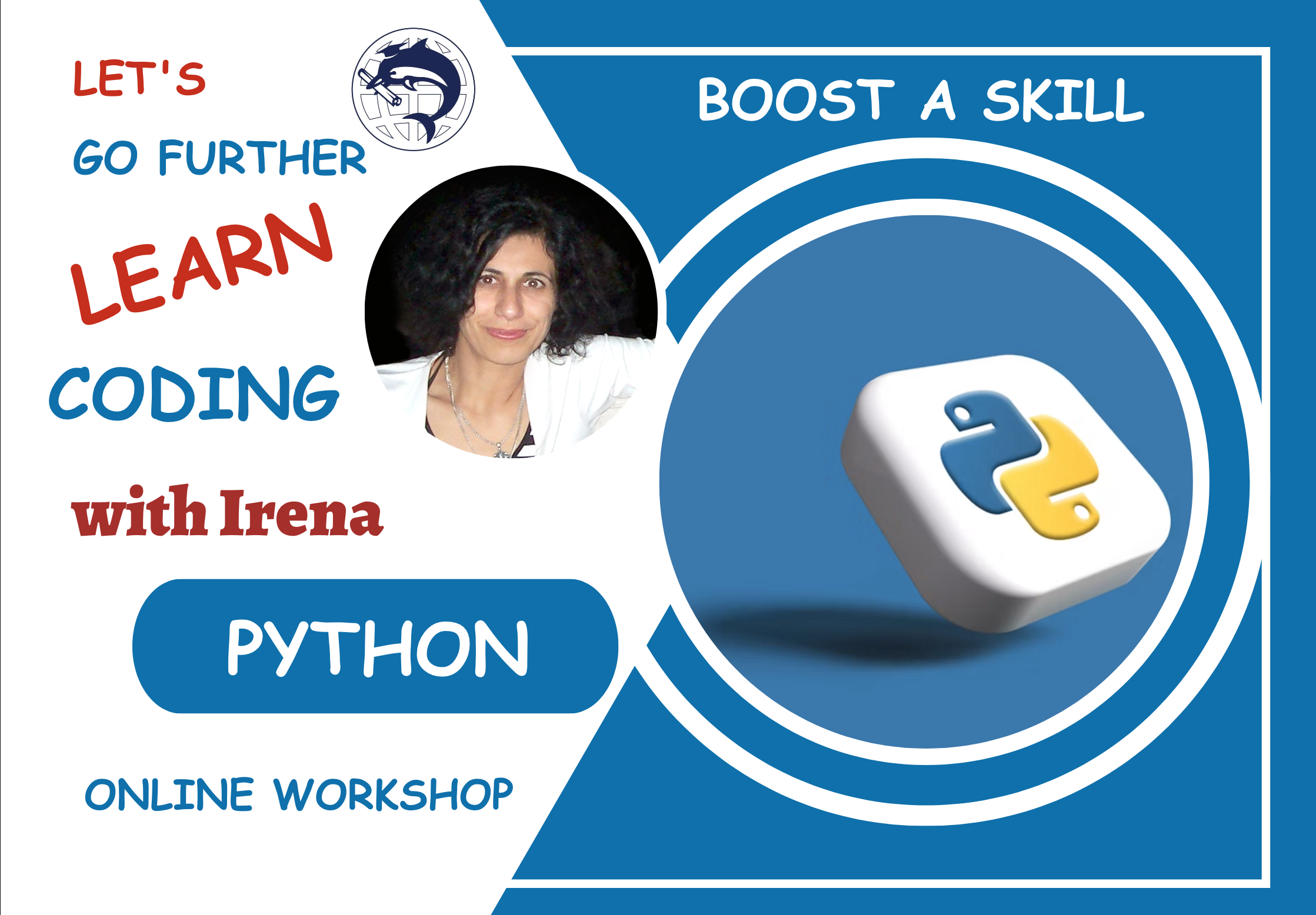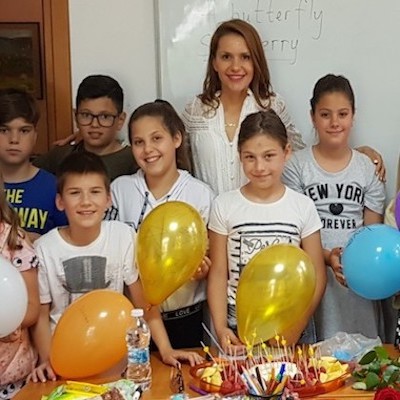Python Fundamentals
Python Fundamentals
Become a Python programmer in just 6 months
See yourself as a Scientist? So do we. Grow your career as a Data Scientist with a comprehensive curriculum.
Discover the essentials of Python, one of the most versatile and widely-used programming languages. Learn about variables, data types, and basic operations to build a strong foundation for your coding journey.
Are you ready to gain the foundational skills you need to become a Python programmer? In this track, you'll learn the Python basics you need to start on your programming journey, including how to clean real-world data ready for analysis, use data visualization libraries, and even how to write your own Python functions.

Hands-on experience to tech mastery
Through hands-on coding exercises you’ll then learn how to store, manipulate, and explore data using NumPy. Then it’s time to level-up as you learn how to visualize your data using Matplotlib, manipulate DataFrames and dictionaries using pandas, and write your own functions and list comprehension.
Get Started NowPython Fundamentals
Start this track to add these essential Python skills to your data science toolbox.
What is Python?
Python is a popular programming language known for its versatility and ease of use. It is widely used in various domains, including software development, data analysis, and machine learning. With its intuitive syntax and extensive standard library, Python offers a powerful and flexible programming experience. It supports object-oriented programming and provides features such as regular expressions and list comprehensions. Whether you're a beginner or an experienced programmer, Python is a valuable language to learn and master.

The Curriculum
The core curriculum aims to give each student a rich and sturdy foundation, incorporating soft and hard skills alike
Python Findamentals course desription
🎯 The Core curriculum - duration
The core curriculum takes an average of 18 months of full-time study to complete, however this varies depending on how much time one dedicates to it. The maximum amount of time that can be spent on the curriculum is 24 months. It accommodates flexibility in schedule and pace, however I strongly recommend prioritising your studies over other activities while you’re here, as a certain amount of momentum is needed to progress well.
Project-based learning : Students take ownership of their learning experience through a practical curriculum. Surpassing oneself is the only way to move forward but you can always count on the strength of the group.
Peer-to-peer pedagogy : Each student must problem solve, work with others and, ultimately, fail a few times to find the answer. We provide you with the environment, tools, projects, support and community to find the answers for yourself.
* More info via
info@delphincenter.coms
Our campus is online. After class you study with your own pace.
Thank you for choosing us for your language service provider.
🚀 Happy Learning Journey!
Python Fundamentals
Programs

Program at a glance
Programs
Program Overview
🎯 Course description
Learning to program Python is now easier than ever. With the certified online training to become a Python programmer, you can get started with software development with Python. You will learn the basics of the Python programming language and familiarize yourself with the most important programming concepts such as variables, types, functions and methods.
Based on this, you will independently develop and expand classes and modules. You carry out unit tests and ensure the functionality of your code. You work with the widely used Python Standard Library and devote yourself to advanced concepts of object-oriented programming such as inheritance and composition
You will end the online course with a company-relevant final project on configuring a password manager and, upon successful completion of the career path, you will qualify for a job role as a Python programmer, Python developer or software developer.
- Work with selected Python libraries
- Practical project for automating work processes
- Object-oriented programming (OOP) with a focus on classes and attributes
- Leverage inheritance for code reusability
- Get to know additional functions to simplify classes
- Final project on configuring a password manager
In this training you will learn : Python Basics, OOP Basics, Advanced Python
Process data and text in Python :
*
Thank you for choosing us for your language service provider.
🚀 Happy Learning Journey!
Prices
КОМПЮТЪРНО ОБУЧЕНИЕ
| S. No. | Наименование на курса | Хорариум (акад. часа) | Цена в лв |
|---|---|---|---|
| 1 | Web-дизайн. Проектиране и създаване на Web-сайтове | 100 | 520BGN |
| 2 | Увод в програмирането с Python
Project: Buiding a Game |
100 | 440лв. |
| 3 | JavaScript Basics | 100 | 600лв. |
| 4 | Web-design: HTML5, CSS & JavaScript Fundamentals
Проектиране и създаване на Web-сайтове |
100 | 440лв. |
| 5 | Web-design: CSS Animations | 100 | 600лв. |
FAQ & Info
Which topics are covered in this python course?
In this Python course, you will cover a range of topics, including the basics of programming, control flow, data structures, and working with libraries. You will learn about fundamental programming concepts and gain hands-on experience through interactive coding challenges. The course also introduces you to the standard library, which provides a wide range of tools and functionalities for different tasks. By the end of the course, you will have a solid understanding of Python programming and be able to tackle real-world programming projects.
What are the benefits of learning Python for my tech career?
Learning Python can greatly benefit your tech career in multiple ways. Python is a popular programming language used in various industries, making it a valuable skill to have. It is widely used in fields such as software development, data analysis, machine learning, and web development. By mastering Python, you can enhance your job prospects and access a wide range of career opportunities. Python's versatility and extensive libraries allow you to solve complex tasks and work on exciting projects. Moreover, Python's clean and readable syntax makes it a favourite among developers, contributing to its widespread adoption in the tech industry.
No! Most of our courses are designed to be accessible even if you're new to tech. My primary goal is to help you jumpstart their careers in tech. So, don't hesitate – dive in and give it a try!.
Online & flexible
You decide where to go! Complete your further training part-time or full-time. And the whole thing is completely flexible, 100% online. You also have the choice between part-time or full-time courses.
Personal mentoring
We won't leave you alone. Training Success Management is always at your side with advice and support. Our goal: to create the best learning experience for you.
80% practical component
We prepare you optimally for starting your new career. Thanks to the high practical part of our training, you are optimally prepared to apply the skills you have learned and can get started straight away.
Above-average completion rate of 91%
We make sure you graduate! Our above-average completion rate shows how we motivate the participants in our courses and thus get them to completion.
Target group
The Python Programmer training is suitable for anyone who wants to learn Python as a programming language and use it professionally. You should have an enthusiasm for logical thinking and solving complex problems. The further training is suitable for career changers and is the perfect introduction to software development to become a Python developer, software developer or data scientist.
More info about the program
Python Program is in Modules
Here you will find an overview of the Python programmer modules.
1. Python Basics
Chapter 1: Data Types
In this chapter you will move into our programming environment - the Data Lab - for the first time and execute your first code commands. You will initially learn what data or text represents in Python. Using a set of rules, you will learn how data is created, assigned and tested in variables . You will then discuss how to read out common error messages and practice how to use them productively in your everyday work.You will also learn basic Python standard functions such as: B. _ know type() or str() and use them in application examples. After you have gotten to know the if statement and can use it to attach conditions to the flow of your code, you complete the chapter with the first part of a two-hour mini project: You program a user interface that reacts flexibly to the user's input.
Chapter 2: Flow Control
In the second chapter you will develop two essential processes to make your code even more flexible: You will get to know lists and for loops . Lists allow more flexibility in storing data and are a prerequisite for advanced programming. You learn to create them, read them and change them in a targeted manner. With lists you expand the functionality of your user interface from the first chapter and thus complete the first mini project. You will then work with for loops, with which you can automatically execute your code several times and thus reach the next level of programming
Chapter 3: Functions, Modules and Methods
In the third chapter you will round off your programming skills in Python and learn advanced techniques. This includes functions and methods . You will learn to define functions independently and thus structure your code better. You also combine the individual programming elements such as conditions, loops and functions in programs. Using different methods, you will work out how to import Python modules correctly and ensure functionality as a whole. In addition, you will learn how to read and export data as a simple test. With the help of a one-hour mini project with telephone data, you will consolidate the content you have learned in the chapter.
Chapter 1: Advanced Python
In the introductory chapter you repeat the most important content from the previous module before getting to know a series of concepts that catapult you to the next level of Python programming. You'll take a deeper look at the function definition and get to know standard values, type hints and assert statements. You can then use functions even better as tools for your projects. You will also cover the terms List Comprehension and Dictionary Comprehension for the efficient creation of lists and dictionaries. At the end of the chapter you will learn how to adapt your code to the industry standard PEP8 based on layout and structure.
Chapter 2 - OOP Basics
In the second chapter you will learn, using simple examples, what OOP is, which program principles are based on it and what conclusions you can derive from it. In the main part of the chapter, you explore how classes and attributes are defined and used. You will use examples to examine instance methods as well as their use and definition with method chaining . You'll learn what the self keyword is, as well as distinguishing debugging from class definitions . Finally, you test your previous specialist knowledge in an interactive intermediate project and repeat the exercises from the chapter.
Chapter 3 – Inheritance and Composition
In the third chapter you will learn what inheritance and composition are and how to use these concepts in use cases. In addition to simple inheritance, you will also learn more advanced methods such as the inheritance hierarchy and multiple inheritance . You will practice in-depth methods of inheritance that are used to reuse data from parent to child classes and compensate for data loss. Finally, we will provide you with the most important best practices for unit testing so that you can discover errors in your code before your users find them.
Chapter 4 – Advanced OOP
In the fourth chapter you will discuss further terms of object-oriented programming that will accompany you in your everyday work. You study how programs and modules differ and what role __ main __ plays in this. You will also learn what decorators are and how to optimally use property decorators . You look at static and class methods and which special methods and class representations can be used with __ str __ () and __ repr __ (). Building on this, you will get to know the representation options for operator overloading as well as other important methods from the Python Standard Library and then apply the learning content you have learned in a company-relevant interim project.
Chapter 5 - OOP Applications
In the fifth chapter you will demonstrate your knowledge in two larger projects that represent classic use cases of object-oriented programming. In the first project, you will build your own interface to a popular data science library , which enables further uses for machine learning and data or text analysis. The second project deals with programming your own blockchain , where you will get to know the underlying concepts in more detail. At the end of Module 2 you will be prepared to use OOP in the corporate world.
Final project
As part of the final project, you will deepen the content you have learned from the Python Basics and Object-Oriented Programming modules and independently program a password manager. To do this, you set up a programming environment and fill your file with data sets using a terminal, which creates a set of rules that configures the password manager.
Let us advise you without obligation.
Arrange a consultation appointment with our expert Irena Popova now! We will work with you to find suitable further training and answer any questions you may have. We look forward to seeing you.
🇬🇧 Курсове по английски език
Enroll in this course
Do not hesitate to contact us for further assistance and questions.
📞 +359(0) 879 461 009 !
Book a consultation





